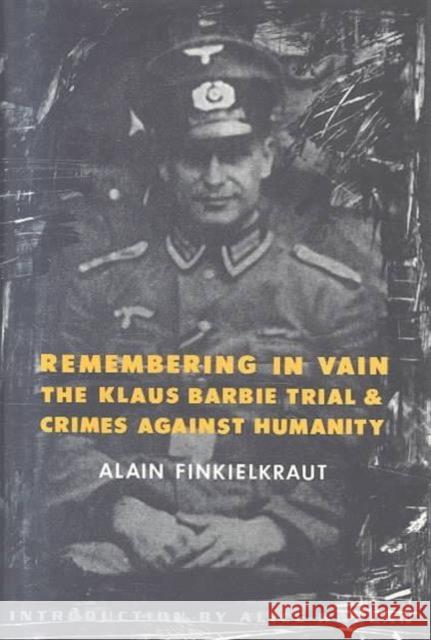Remembering in Vain: The Klaus Barbie Trial and Crimes Against Humanity » książka
Remembering in Vain: The Klaus Barbie Trial and Crimes Against Humanity
ISBN-13: 9780231074643 / Angielski / Twarda / 1992 / 102 str.
In 1988, in what was probably one of the last trials of a Nazi war criminal and the first of such trials to take place in France, Klaus Barbie, the notorious "Butcher of Lyon," was found guilty of crimes against humanity and sentenced to life in prison. Yet despite the memories stirred, despite the verdict, to Alain Finkielkraut the trial was a moral failure. In Remembering in Vain, Finkielkraut maintains that the Barbie trial attests to the failure of international society to take responsibility for criminals of state. Trying Barbie not only for actions against Jews but also for actions against the Resistance--actions heretofore considered war crimes, on which the statute of limitations had run out--blurred the definition of crimes against humanity. Finkielkraut finds most disturbing how seriously taken were the arguments of the defence. By manipulating the guilty conscience of the West, Barbie's Vietnamese-French, Congolese, and Algerian lawyers became accusers, disputing the special significance of the Holocaust and portraying nearly everyone as a Nazi--except the former Nazi himself. Finkielkraut points to the ultimate irony of this Third World defense of a Nazi.











